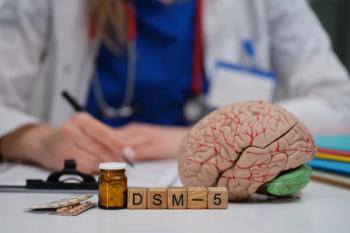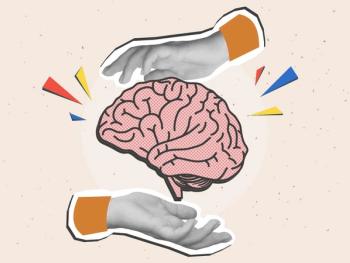
- Vol 39, Issue 7
Psychiatry and Psychotherapy: The Great Divorce That Never Happened
A frequent criticism of psychiatry: psychiatrists do not learn, practice, or value psychotherapy. Is it true?
AFFIRMING PSYCHIATRY
A frequent criticism of psychiatry is that psychiatrists do not learn, practice, or value psychotherapy. Even critics within the field routinely complain that psychiatry has “lost its mind,”1,2 whereas outside critics frequently portray toxic biological psychiatrists in competition with humane psychotherapists from other disciplines.3,4 The psychiatrist, as the story goes, is interested only in diagnosing and medicating patients—not in understanding, supporting, or working psychotherapeutically with them. This story, widely reported as fact in the media,5 is an outdated, harmful myth—one that discounts the realities of psychiatric training, the complexity of the psychiatric treatment relationship, and the resurgence of interest in psychotherapy among psychiatry residents.
In the mid-20th century, psychotherapy was the treatment of choice for most mental disorders. Even after the development of the first effective psychotropic medications in the 1950s and 60s, psychotherapy remained the mainstay of psychiatric treatment, especially in the psychoanalytically dominated United States. By the late 1980s, however, the field had shifted in a biological direction. The development of selective serotonin reuptake inhibitor antidepressants in particular led to great excitement in the promise of biological investigation and treatment. Nevertheless, psychotherapy continues to be practiced by psychiatrists, with some devoting their academic and clinical careers to the study and practice of psychotherapy.
The idea that psychiatry is divorced from psychotherapy is, in fact, divorced from reality. Here are 4 fundamental examples of the union between psychiatry and psychotherapy.
1. Psychiatry residents receive significant formal instruction in psychotherapy.
One of us (DM) is director of residency training at a psychiatry department in the Northeast; the other (MR) teaches in that program and serves as codirector of the psychotherapy track for a psychiatry residency program in Florida. As such, we have direct knowledge of the quality and extent of training psychiatry residents receive in psychotherapy. By contrast, most critics of psychiatry do not teach in psychiatry departments and have little to no firsthand knowledge of psychiatric residency curriculum.
Training in supportive, psychodynamic, and cognitive-behavioral psychotherapy is nationally mandated for all psychiatry residents.6 Residents must also learn to integrate psychotherapy with psychopharmacology and spend substantial time practicing psychotherapy during their outpatient training. They attend several yearlong didactic courses in psychotherapy and are individually assigned psychotherapy supervisors (many of whom are psychiatrists). Didactic instruction typically covers a range of psychotherapy topics, such as case clinical formulation, transference, countertransference, and psychotherapeutic technique. Clinically, residents see patients for short-term and longer-term psychotherapy treatments.
Approximately a quarter of psychiatry residencies also offer specific psychotherapy tracks for residents with particular interest in psychotherapy and for those who plan to pursue additional training in specific psychotherapies (eg, psychoanalytic training) postresidency.7 Many individuals, even mental health professionals, assume psychotherapy training is weaker for psychiatry than for other mental health disciplines such as psychology and social work. Yet a national survey published in 2006 showed that psychiatry compared favorably to other disciplines for evidence-based forms of therapy training.8,9 Thus, the claim that psychiatrists do not learn psychotherapy is false.
2. Psychotherapy is a part of almost all clinical interactions.
Although most psychiatrists nowadays do not offer traditional 45-minute or 60-minute psychotherapy appointments to all their patients,10 psychotherapy continues to be practiced in some form by most psychiatrists. From a psychodynamic perspective, every interaction between doctor and patient, even in the hospital setting, is an opportunity to relate to the patient psychotherapeutically. Sudak and Taormina11 have described the integration of cognitive-behavioral therapy into medication management visits, and Iannitelli et al12 have recently discussed the application of psychodynamic principles during psychopharmacological treatment.
Undoubtedly, most psychiatrists engage in some supportive psychotherapy even during brief visits and even if they do not formally label or bill the sessions as such. Moreover, in their study, Tadmon and Olfson10 found that 47% of psychiatrists continue to offer 45-minute to 60-minute psychotherapy sessions to patients. Thus, claims that psychotherapy has simply disappeared from psychiatric practice are false.
3. In the past decade, there has been a resurgence of interest in psychotherapy and psychosocial approaches among psychiatry residents.
A 2012 survey of residents reported that 82% of them consider “psychotherapy to be integral to their identity as psychiatrists.”13 Another survey showed that residents want more psychotherapy training rather than less.14 Our experience matches the results of such research. In fact, we have observed an increasing number of psychiatry residents interested in learning and practicing psychotherapy during the past decade.
In recent years, psychiatry has become a popular and competitive specialty choice among medical students, who describe their interest in learning the art of engaging deeply with suffering patients and combining psychosocial treatments with biological interventions. Many residents are particularly eager to learn psychotherapy methods and rightfully view psychotherapy as a core, foundational skill in the practice of clinical psychiatry. Meanwhile, some professional organizations are specifically devoted to the advancement of psychotherapy training within psychiatry, such as the American Academy of Psychodynamic Psychiatry and Psychoanalysis.
4. Many leading psychotherapy scholars are psychiatrists, and this has been the case for decades.
Some of the leading figures in American and global psychotherapy are psychiatrists, including Otto Kernberg, MD; Glen Gabbard, MD; and the recently deceased Aaron Beck, MD, father of cognitive-behavioral therapy. Several psychiatrists who are leading researchers in psychopharmacology have also undertaken research validating medical psychotherapy.15,16 Psychiatrists make up a significant percentage of membership of the American Psychoanalytic Association. They are also frequent presenters at national psychotherapy conferences and contributors to psychotherapy journals. The American Journal of Psychotherapy, a leading journal of psychotherapy theory and practice, is a journal of the American Psychiatric Association. Thus, the psychiatric profession remains integral to psychotherapy development and research.
Concluding Thoughts
Psychotherapy continues to be a core aspect of psychiatrists’ training and identity. Psychotherapy training also continues to be a substantial and mandatory component of residency training for all psychiatrists. Contrary to popular assumptions, it is not critical that all psychiatrists conduct traditional psychotherapy as part of their practice. No one becomes alarmed if all cardiologists do not practice cardiac catheterization, and no one should worry that “only” half of all psychiatrists currently offer traditional 45-minute psychotherapy sessions. But all psychiatrists should continue to support psychotherapy’s place in mental health treatment and in the holistic, biopsychosocial treatment that psychiatrists routinely offer.
For decades, critics and leading psychiatrists have worried that psychotherapy among psychiatrists will one day die out and be forgotten. Yet for decades, reports of its demise have been greatly exaggerated.
Dr Ruffalo is an instructor of psychiatry at the University of Central Florida College of Medicine in Orlando and an adjunct instructor of psychiatry at Tufts University School of Medicine in Boston, Massachusetts. He is a psychoanalytic psychotherapist in private practice in Tampa, Florida. Dr Morehead is a psychiatrist and director of training for the general psychiatry residency at Tufts Medical Center in Boston. He frequently speaks as an advocate for mental health and is author of Science Over Stigma: Education and Advocacy for Mental Health, published by the American Psychiatric Association.
References
1. Carlat DJ. Unhinged: The Trouble with Psychiatry—A Doctor’s Revelations about a Profession in Crisis. Simon & Schuster; 2010.
2. Breggin PR. Toxic Psychiatry. St. Martin’s Press; 1991.
3. Luhrmann TM. Of Two Minds: An Anthropologist Looks at American Psychiatry. Vintage; 2001.
4. Whitaker R. Mad in America: Bad Science, Bad Medicine, and the Enduring Mistreatment of the Mentally Ill. Perseus; 2002.
5. Harris G. Talk doesn’t pay, so psychiatry turns instead to drug therapy. The New York Times. March 5, 2011. Accessed May 4, 2022.
6. Psychiatry: Program requirements and FAQs. Accreditation Council for Graduate Medical Education. Accessed May 4, 2022.
7. Rim JI, Cabaniss DL, Topor D.
8. Weissman MM, Verdeli H, Gameroff MJ, et al.
9. Weissman MM.
10. Tadmon D, Olfson M.
11. Sudak DM, Taormina S.
12. Iannitelli A, Parnanzone S, Pizziconi G, et al.
13. Lanouette NM, Calabrese C, Sciolla AF, et al.
14. Kovach JG, Dubin WR, Combs CJ.
15. Prosser A, Helfer B, Leucht S.
16. Miklowitz DJ, Efthimiou O, Furukawa TA, et al.
Articles in this issue
over 3 years ago
Love, Alzheimer Disease, and Medical Aid in Dyingover 3 years ago
Caregiving: Walking the Personal and Professional Tightropeover 3 years ago
Opioid Treatment “Mismatch” Threatens Vulnerable Communitiesover 3 years ago
The Not Deadover 3 years ago
Behind Bars: An Insider’s Perspective on Correctional Psychiatryover 3 years ago
What Is an Effect Size?Newsletter
Receive trusted psychiatric news, expert analysis, and clinical insights — subscribe today to support your practice and your patients.







